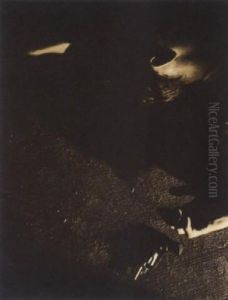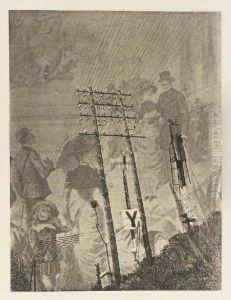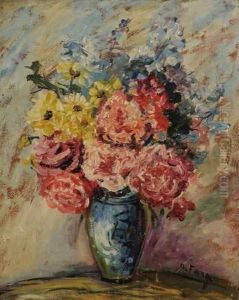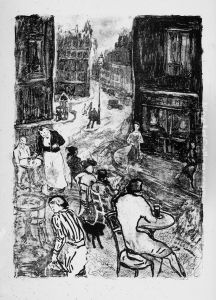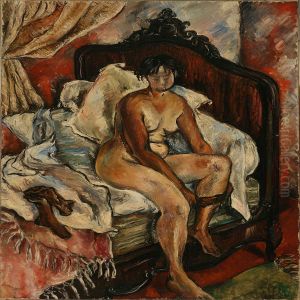Leon-Paul Fargue Paintings
Leon-Paul Fargue was a distinguished French poet and essayist, known for his lyrical and evocative works that captured the spirit of Paris and the intricacies of time and memory. Born in Paris on March 4, 1876, Fargue started his literary career at a young age, immersing himself in the vibrant Parisian artistic scene. He was associated with the Symbolist movement, which sought to express the ineffable and the mysterious through indirect and suggestive imagery, though his work eventually evolved beyond its confines to embrace more modernist tendencies.
Fargue's poetry is characterized by a deep nostalgia and a poignant exploration of the past and the fleeting nature of experiences. He was particularly fascinated with the city of Paris, which served as the backdrop for much of his work. His most famous collection, 'Poèmes' (1912), showcases his ability to blend rich imagery with a sense of melancholy and longing. Fargue was also known for his essays and prose poems, which further explored his preoccupations with urban landscapes and the passage of time.
Throughout his career, Fargue was connected with many of the leading literary and artistic figures of his time, including Marcel Proust, with whom he shared a close friendship, and the composers Erik Satie and Maurice Ravel, the latter of whom dedicated his piano piece 'Le tombeau de Couperin' to Fargue. Despite his significant contributions to French literature, Fargue remained somewhat on the periphery of the literary establishment, a position that perhaps suited his introspective and idiosyncratic style.
Leon-Paul Fargue's health declined in his later years, and he died in Paris on November 24, 1947. Today, he is remembered as a unique voice in French literature, one whose works capture the ephemeral beauty of everyday moments and the enduring allure of Paris. His writings continue to be celebrated for their lyrical quality and their ability to evoke the complexity of memory and place.
